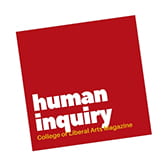Painting depicting the story of Betsy Ross presenting the first American flag to General George Washington, by Edward Percy Moran
In addition to shaping global politics, wartime inevitably impacts local family dynamics. In “Writing Women’s History Through the Revolution: Family Finances, Letter Writing, and Conceptions of Marriage,” an article published in a recent issue of The William and Mary Quarterly, Sara Damiano, assistant professor in the Department of History analyzes the correspondence of seven New England couples written during the American Revolution and finds that economic dimensions of marriage. “Wives assumed enhanced responsibilities in financial matters,” Damiano writes. “Close analysis of the everyday dynamics of marriages…through the eighteenth-century letter offers an entry point into the study of women’s economic lives during wartime.”
With husbands away at war, wives were compelled to make financial and household decisions with husbands, and these shifting roles also changed and made tense the dynamics of interpersonal relationships between couples. “The war increased marriages’ importance as economic alliances: husbands and wives collaborated to provide for households, preserve their assets, and move resources between locations, with wives assuming enhanced responsibility in all of these areas,” Damiano explains.
Damiano’s work focuses on middle class and elite family dynamics, but she invites others to continue scholarship into dynamics of other military families during the Revolution, including “the wartime economic lives of nonwhite, lower-class, and unmarried women,…[as well as enslaved] African and African American women had their own relationship to the American Revolution,” she writes.
Thanks to Damiano’s work, comparisons can be drawn and connections made between military families in the eighteenth-century and military families today as they navigate the effects of war on family roles and modern-day household economics.
